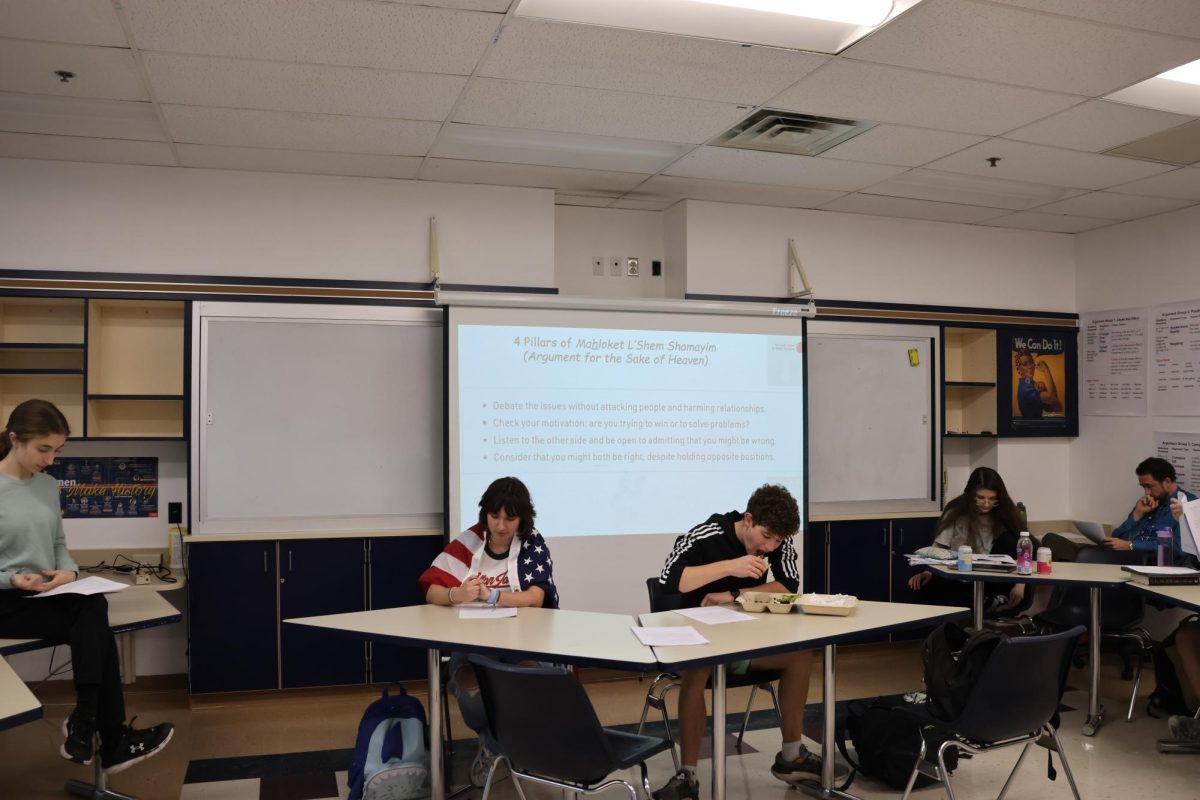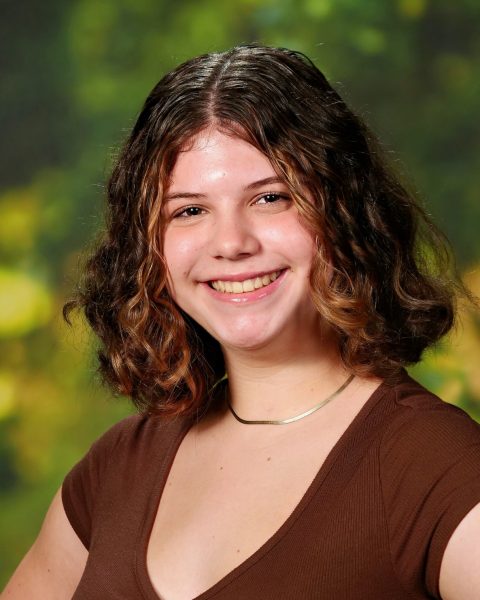After three years of learning history at CESJDS, the senior class is now using their historical knowledge to teach other students about current issues. With the newly introduced “Dine and Discuss” project, seniors in advanced history are leading conversations about topics relevant to this year’s election.
To prepare, students spent around four days compiling informational packets with many proposals to solve the issue of their topics. These would later be discussed and voted on at the end of the project.
There are many discussions taking place during lunch and CT leading up to the election. They began on Oct. 14, and are spanning until Nov. 4. The discussions are open to any JDS community members interested in participating.
According to history teacher Natalie Levitan, the project was introduced this year in order to expand on domestic policies and topics relevant to the election to address heightened urgency in spreading information.
“We tried to get a diverse group of policies or issues that we thought were going to be important in this election and also interesting to the JDS community,” Levitan said.
Students were given the choice between various topics such as reproductive rights, climate tax policy, border security and housing policy. The students then spent around four class periods compiling source sheets and preparing for their sessions.
Senior Evan Klepper has been working on the topic of inflation, and has enjoyed being able to connect to the modern word in his history class.
“I like that I got to choose my own topic… and become more knowledgeable about it,” Klepper said. “…I definitely feel a lot more knowledgeable than I was going in, because… my understanding was very basic. Now it’s a little bit more complex.”
Klepper has enjoyed these discussions, as he says attending them offers students an opportunity to learn about important issues in society today in a casual environment, where no one is there to force their opinions on anyone else.
In each discussion room, projected on the screen is a slide that states the four pillars of “machloket l’shem shamayim”, or arguments for the sake of heaven, to remind participants that no one should be there to convince others that they are right. They should be there to gain knowledge and acknowledge others’ points of view, according to Senior Max Weitzner, who’s discussion covered environmental topics.
“It’s important to be mindful of people and keep the discussion civil,” Weitzner said. “Especially [in discussions about] politics, that can be tough.”
Although there was a diversity of views in his discussion, Klepper believes that his discussion ran smoothly.
“I think overall, the discussion went exceedingly well…” Klepper said. “I think everybody learned a lot, and we saw a good, decent array of opinions, but I think everybody you know found some common ground there.”
While this project was formed because it is an election year, Levitan said that she would love to continue doing projects like this in future years.
“We’re looking forward to sort of seeing how the community responds to it,” Levitan said. “I think it’s an exciting opportunity, so hopefully there’s a positive response”















